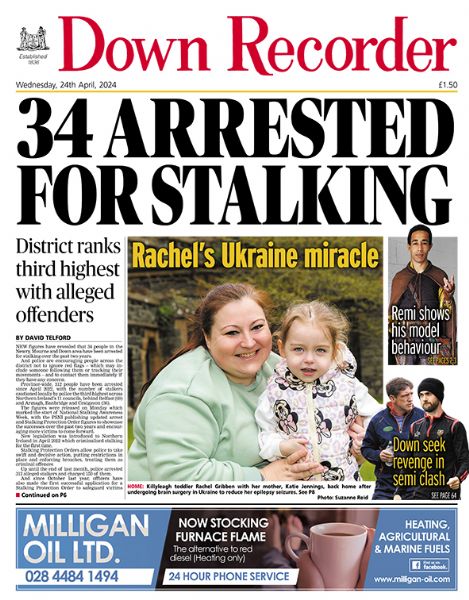Pre-school leaders in defence of their service
Pre-school leaders in defence of their service
3 June 2015
PRE-school leaders from the voluntary sector have spoken out to defend the quality of their service following the launch of a campaign to secure more statutory nursery provision in the area.
Hundreds of parents have responded to an online campaign to widen government-funded nursery provision in Downpatrick after dozens of children were once again denied places.
Parents mounted the campaign to encourage the government to tackle the dearth of nursery places after the town’s three nursery schools confirmed they had once again been oversubscribed due to high demand.
Some of those parents have also expressed disappointment about their children being allocated a place in a voluntary pre-school instead of a nursery, claiming pre-schools do not offer similar provision.
This has prompted a reaction from several pre-school leaders who have defended the quality of their provision and emphasised the availability of places in the wider sector.
Among them was Mrs Margaret Tighiouart, who has been leader of Saul Pre-School for the past 10 years.
She said she has been dismayed to hear some parents claim that nursery provision is superior to that provided by the voluntary sector and insisted most pre-schools offer the same high standards as nurseries as well as some advantages.
She said there was a misconception that nurseries were superior because they are run by qualified teachers, but said many pre-school leaders, including herself, now have honours degrees.
She added that the smaller ratio of staff to children in preschools was a significant benefit of the voluntary sector.
“Nurseries have an adult to child ratio of 1-13, while pre-schools have a ratio of 1-8, which means we can focus very closely on the children,” she said.
“We are inspected annually and meet the standards set down by Social Services. We are scoring as high, or often higher, in inspections than some nurseries.
“Nurseries do offer a longer session, which I understand may better suit working parents, but the implication seems to be that if a child does not get a nursery place that they are somehow settling for second best. I am convinced that is not the case.”
Wanda Smith, leader of Playlinks Playgroup in Strangford, agreed and said she considered her job a “vocational profession.”
“We definitely do not do this for the money,” she said.
“I have a degree in early years and feel that helped me bring more to my job. We just want to dispel the myth that pre-schools are second best.”
Maria O’Donnell, who has been leader of Teconnaught Pre-School for 12 years and who achieved an outstanding inspection report two years ago, said leaders are continually refreshing their training, which was of benefit to the children.
“Our preschools are full, which speaks for itself, and after hearing about the disappointment of parents who have not gained a nursery place we just want to get the message out that we are doing a good job,” she said.
“The fact that we employ more staff means we have more freedom and opportunities to do outings and can maybe offer more one-to-one opportunities.”
Stephanie Murray, who has been leader of Ballykinlar Cross-Community Pre-School for 15 years and who achieved an outstanding inspection report in February, said there was often a feeling that children were missing out and were not being sufficiently challenged if they did not gain a nursery place.
With an honours degree in early years, she said pre-school leaders were often highly qualified.
“We cover the same curriculum as nurseries and are on a par with them,” she said.
“We are very well resourced and our inspections demonstrate the quality of our provision. It is disappointing that the system is considered two-tiered and that is why we have wanted to speak out.”

